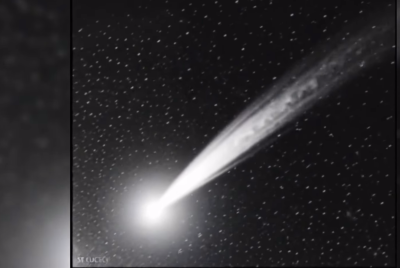Chimps May Have Evolved Unique Sexual and Breeding Practice: Study
![Chimpanzee [For Representative Purpose]](https://d.ibtimes.co.uk/en/full/390830/chimpanzee-representative-purpose.jpg?w=736&f=36f73e46f19d1298fe83d29b1ec5dff5)
Researchers from Pennsylvania's Duquesne University suggest chimpanzees' sexual and breeding practices have undergone an evolutionary change, compared to close living relatives like gorillas and human beings.
Michael Jensen-Seamen and Hergenrother believe male chimpanzees' semen has evolved to counter the regulations of a certain enzyme otherwise present in high quantities in both human and gorilla males.
This enzyme - ACPP - prevents the semen from coagulating on ejaculation and is found in concentrated and active quantities in human semen. However, it is found four times less in that from male chimpanzees.
It appears male chimpanzees' semen turns semi-solid once it enters the female's genital tract, increasing the chances of impregnation. This development, coupled with the considerably more active sex life a chimpanzee enjoys, greatly multiples the chances for offspring.
The question the researchers asked was whether limiting the enzyme's functionality was an evolutionary trait drawn our [the chimpanzees and humans] last shared ancestor or something the chimpanzees evolved at a later stage.
To answer the question, the researchers looked for ACPP levels in gorilla semen. Evolutionarily, gorillas, chimpanzees and human being shared similar lineages up until a few million years ago, meaning they are the closest living link between our two species.
Analysis of gorilla semen revealed levels of ACPP similar to that of human beings, suggesting the chimpanzees triggered the enzyme change after branching out and evolving on their own.
"The chimp mating behaviour does appear to be the derived state," Jensen-Seaman concluded.
However, the researchers are quick to caution that there is no definitive proof the changes happened after the split from a common ancestor. They say it could also be the human-chimp ancestor had chimp-like behaviour and humans reverted to a gorilla-like condition.
There is enough evidence, though, to strongly suggest chimpanzees have evolved a unique mating system. Professor Michael Plavcan, from the University of Arkansas, has studied human evolution extensively and agrees the Duquesne University researcher's study has opened up a new line of thinking.
"People often forget that chimps, like humans, have evolved from a common ancestor and are not some relict species frozen in time," Plavcan told New Scientist.
The study was presented at the Society for Molecular Biology and Evolution (SMBE) in Chicago.
© Copyright IBTimes 2025. All rights reserved.




















